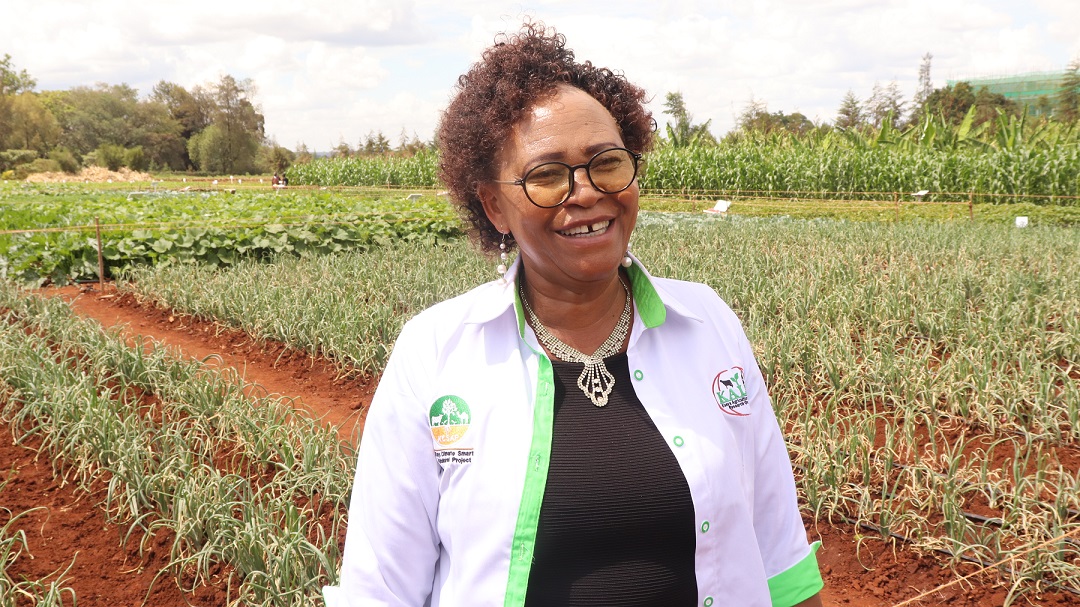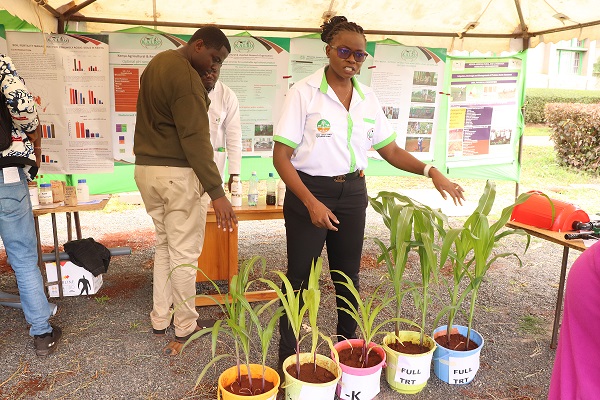
By Robert Malala I malalarobert@gmail.com
Kenya Agriculture and Livestock Research Organization (KALRO) has raised concern over the decreasing rate of production in agriculture due to declining soil fertility in Kenya.
According to the head of station at KALRO Kabete, Dr. Esther Gikonyo most of the soils that are used for farming in Kenya are short of or below the sixteen essential nutrients required for crops to perform well.
“Soil fertility is declining because of continuous cropping without sufficient replenishment of the nutrients in the soil,” said Dr Gikonyo.
While addressing the media during a two days Agricultural Exhibition at the institution, Dr Gikonyo added that currently about 63 per cent of the soils in areas with high and medium rainfall which also has the potential for the country’s food production are acidic with an average pH that is below 5.5.
Most of the crops that the country depends on for food require between the soil pH of 5.5 and 6.5.
“63 percent of the soils in this country will require correction of the pH through the application of Lime which will reduce the quantity of fertilizers used and increase production,” she added.
According to a report released by Agriculture and Food Authority (AFA) in 2019, Food Crops as a subsector in Kenya contributes approximately 33 percent of the total agricultural Gross Domestic Product.
The report indicated that food production in Kenya, was about 10.5 million tons but unfortunately this has reduced by 30 percent.
Kevin Wafula who is a youthful farmer from Pasama village in Teso South Sub-county in Busia County, has been growing tomatoes, Soya beans, maize and beans for several years but says that he has never tested soils in his farms.
All along he has been wondering why the yield is declining despite applying fertilizer during planting and even at top dressing stages.
“Last year I planted Rose cocoa variety of beans in one and a half hectare of land and harvested 20kgs only, just because I assumed my soil was okay, but I expected to harvest between six and nine sacks of 90kgs, said Wafula.

According to Shaban Wandera a perennial farmer in Matayos Sub-County in Busia county, westen Kenya majority of farmers fear getting in to soil sampling process because of the expenses involved yet others lack awareness of its importance.
“It is very difficult to convince a farmer to spend one thousand shillings (USD 7) on soil testing and spend another five hundred shillings (USD3.6) to and from our research centre called Alupe KALRO to go for soil testing,” said Wandera.
The main food crops in Kenya are maize, wheat, rice, potatoes, Green grams, and beans whereas Maize is the principal staple food of Kenya and it is grown in 90 percent of all Kenyan farms.
Most of the varieties of maize planted in Kenya requires a soil pH of between 5.8 and 6.0 an indication that a lot of sensitisation has to be done for farmers to adjust and embrace soil testing if not the use of lime.
For example in Western Kenya where by the main cash crop is sugar cane, production has been lowering day after day causing a very big deficit of cane to the sugar factories in the region.
This is because majority of farmers are continuously planting cane without following procedures nor testing their soils so as to determine the best variety of seed cane and how to neutralize the acidity.
“Sugar cane production has been decreasing in this area, but fortunately as a factory we partnered with other stakeholders and did soil testing before advising farmers on which variety of cane to settle on. This has led to an increase in production,” said Gerald Okoth, the general manager of West Kenya Sugar Company that has contracted a majority of sugar cane farmers in western Kenya.
In her statement, Dr. Gikonyo advised that farmers particularly in areas with high rainfall like North Rift, Mount Kenya and Western regions to embrace the use of lime and then Di-Ammonium Phosphate (DAP) or Nitrogen, Phosphorous and potassium (NPK) fertilizer so as to effectively counter the threat of acidity.
“My appeal to all farmers in this country to test their soils so that they can be given prescription that will cure their soils and by so doing we are going to achieve food and nutrition security and have resilience in the income and climate changes,” reiterated Dr Gikonyo.
This article has been produced with financial support of Media for Environment, Science and Agriculture (MESHA).

Leave A Comment